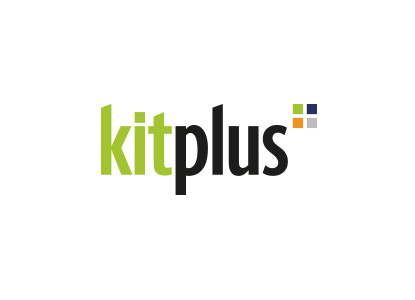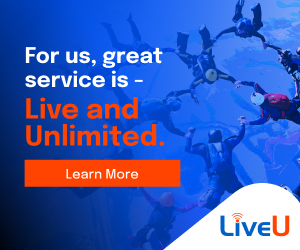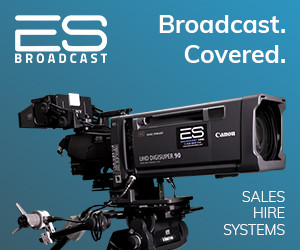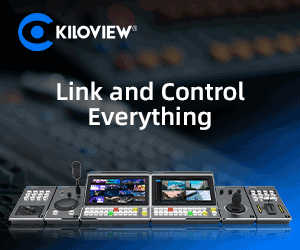Looking for the connection

Author: Bob Pank#
Published 1st February 2012
This time last year I wrote a column which looked back. This year I have set myself the infinitely more challenging task of looking forward. What are the hot topics for 2012?
The first prediction is easy. Television coverage of the Olympics and Paralympics will be extraordinary, capturing all the skill and dedication, elation and heartbreak of the world’s finest athletes. But somewhere in 29 days of intensive, multi-channel broadcasting there will be one tiny error, and that will be all that the popular press focuses on.
If you are working on the games – and I guess just about every freelance in the country will be – then rest assured that I will be looking forward to enjoying the best, not waiting for failure. Unless you really screw up.
3D for movies and events will continue to thrive in the hands of experts, fail dismally in the hands for whom no corner should be left uncut. The Hobbit will be this year’s hit movie. The second Atlantic Productions Attenborough 3D production, Bachelor King, will collect multiple awards.
Yet the exhibition halls will be full of equipment to do 3D on the cheap, or worse still processors to create 3D out of 2D. We all know that, whatever the marketing manager writes on the box, the result will be to make the audience feel very ill indeed. Just say no.
So what would I invest in? For me the answer is simple. 2012 is going to be the year we do multi-platform delivery right. By that I mean we serve appropriate content to appropriate platforms, sometimes simultaneously. There is a huge amount of confusion about this at the moment, because the means to make this work rather crept up on us.
Just two years ago there were rumours that Apple was going to launch a tablet, but all we had were more or less educated guesses of what it would look like and do. I laid hands on one in Las Vegas while waiting for the ash cloud to clear, and immediately posted on Facebook that I wanted one, even though I was not quite sure why.
Steve Jobs called the iPad “the first post-PC device”, and no-one really understood him (no change there, then). Now we can see that it is a remarkable device for accessing and viewing content in an instant and instinctive way, but it is not a computer with all the hassles that involves.
What it has done is made comfortable something that was already happening with smartphones, which is that people watch television and communicate at the same time. I often find myself watching drama on television and wondering why I know a particular actor. Pick up the iPad from the coffee table, hit the IMDB button and the answer is there.
Facebook is the most successful social network, with 750 million users at the last count. At IBC European chief Joanna Shields described her vision of Facebook’s place in the world of television. It is not as a source of content, but as a source of reliable recommendations for content to be found elsewhere. Family Guy has 37 million Facebook friends. A third of the visitors to topgear.com come from the programme’s Facebook page.
More important, though, people will comment to their friends about programmes they enjoy, or hate, in real time. If we each have 130 Facebook friends on average, then recommendations spread. “We are shifting,” according to Ms Shields, “from the wisdom of crowds to the wisdom of friends”.
It is, finally, a solution to the previously insurmountable problem of navigating hundreds of channels and many more alternative sources of content. To control and drive this, broadcasters have to harness this wisdom of friends, which means engaging with them through social networks and other online sources. Make the iPad part of the television experience.
I have already written in these pages why I think the connected TV is the wrong approach: people do not want lots of stuff cluttering up their television pictures. We need to find a way of linking content across multiple screens that is open enough for it to work on any device. That is where the talking is going to be done in 2012.
My final tip for the coming year is that we will see more tactical acquisitions around the industry. Grass Valley was bought by a venture capital firm a year ago, and has been out shopping for firms with key technologies. In the last days of December Telestream announced that they, too, had sold themselves to a venture capitalist because it gives them a fighting fund for strategic purchases.
I look forward to charting their progress, and I predict that many of those acquisitions will be around multi-screen delivery and social television. If it is not too late can I wish you a happy and successful 2012. Come and find me at the big exhibitions and events to tell me why my predictions are wrong. In the meantime, may all your networks be social.


















